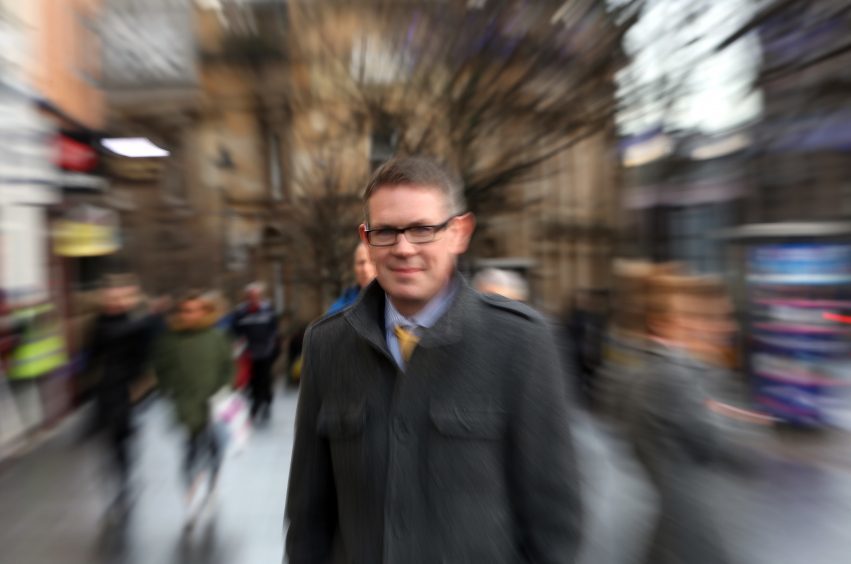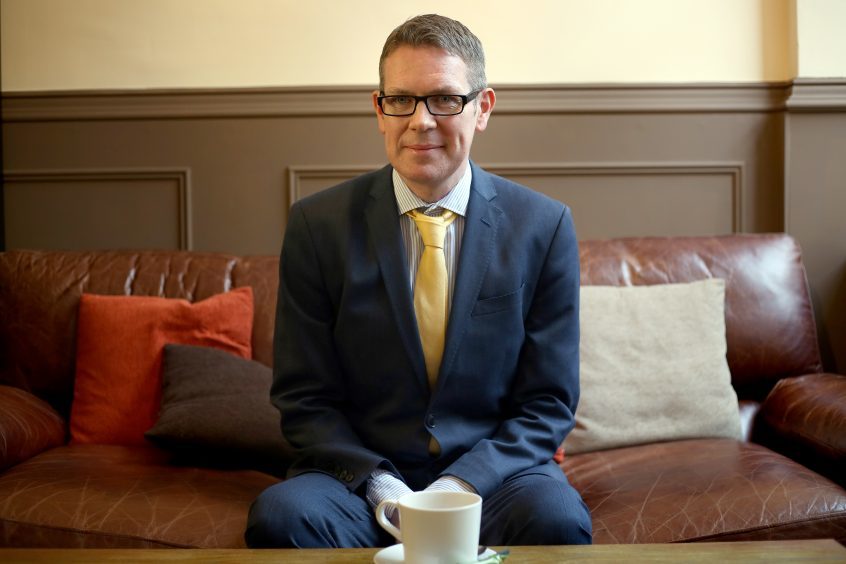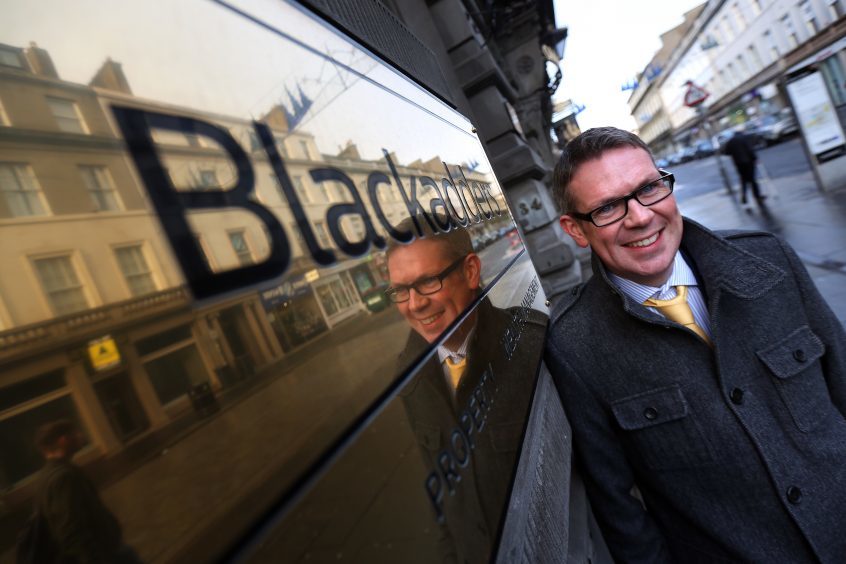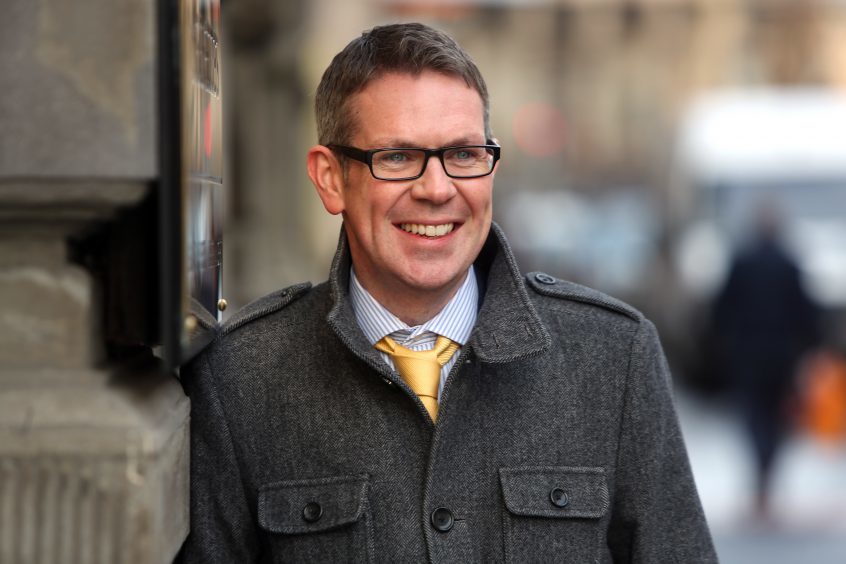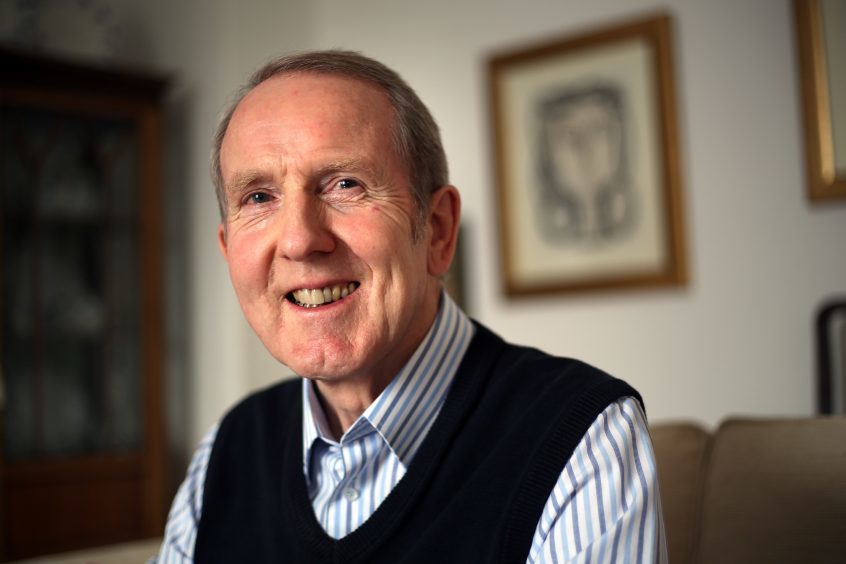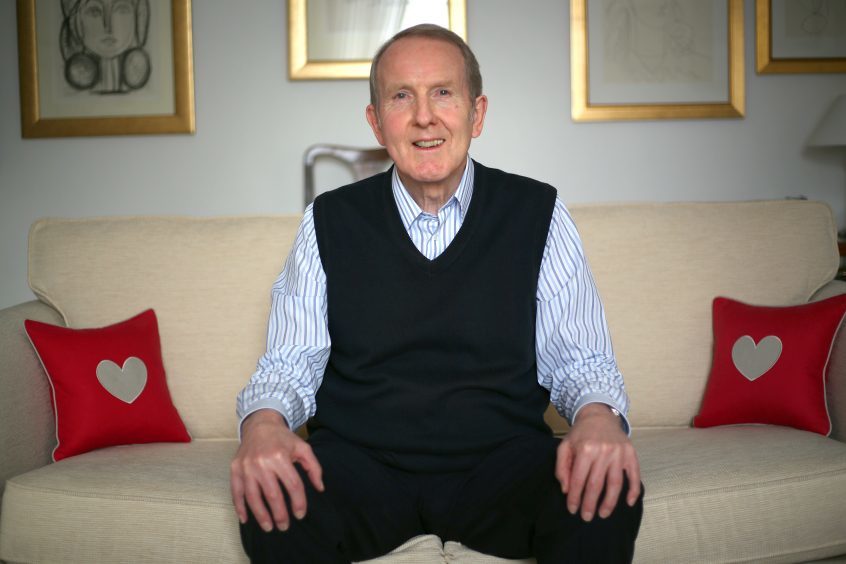Michael Alexander meets two Tayside stroke survivors who are supporting the Stroke Association’s ‘Lost for Words’ campaign throughout December.
Dundee employment lawyer Simon Allison looks and sounds fit and well when The Courier catches up with him for a coffee in Dundee city centre.
But the 41-year-old partner in well-known local law firm Blackadders is one of thousands of people living with communication difficulties after a stroke.
In January, the Wormit-raised former Dundee High School pupil and Dundee University law graduate was running in Newport with his friend Graham when, around 1.5 miles into a six mile route, he had a stroke out of the blue.
“Graham said to me ‘Simon you are incoherent. You are not making sense. Your speech is dreadful – and your face is totally sunk on one side’,” says Simon, adding that he wasn’t aware of what was happening.
Fortunately Graham recognised the signs of a stroke and, despite protestations from Simon that he was fine, he went straight to A&E at Ninewells Hospital in Dundee.
Some hours later, whilst under observation in hospital and after undergoing a CT scan which had identified a tear in the artery beside his brain, Simon had a second massive stroke.
“I was unlucky but at the same time I was lucky – I was definitely in the right place at the right time,” he smiles.
“I remember nothing about it. My wife Maree was there. She said I kept saying the same thing over and over again.
“They gave me a clot busting drug immediately. I was out cold for 48 hours. But when I woke I couldn’t speak. I couldn’t raise my right arm. I couldn’t recognise my own name. “I couldn’t remember anything at all about the previous 48 hours. It was really worrying from my perspective.”
Fortunately for Simon his recovery was swift and he can now walk normally and is well enough to give presentations at work.
After 10 days in Ninewells, he was transferred to the Sir George Sharp Unit at Cameron Hospital, near Leven, for occupational therapy and speech therapy, which he still receives.
He made a phased return to work after three months and is back doing a 5k Park Run every Saturday.
Yet he knows he has been “incredibly lucky”. Others he has met in the stroke unit, including several younger than him who didn’t receive urgent attention, remain paralysed.
“People say to me all the time that after a stroke I should be taking it easy,” he says. “But actually for me my stroke wasn’t caused by stress – it was caused by a tear in my artery. It was a physical injury which is unusual to hear. The really frustrating thing for me is that I’ll never know how I tore that artery.”
Someone else dealing with the after-effects of a stroke is Perthshire man Brian Raine, 71.
The former headmaster of Queen Victoria School (QVS) in Dunblane retired in 2007 – keeping active as chairman of Bridgend, Gannochy & Kinnoull Community Council, assistant governor of 12 Rotary Clubs in West Fife and as an under-18s rugby coach/manager with QVS and latterly at Morrison’s Academy in Crieff.
However, he suffered a stroke whilst walking down Lochy Brae to the Bridgend newsagents on April 6, 2011.
Admitted to PRI as an emergency where he remained for three weeks , it was confirmed one of the carotid arteries on the left side of the brain was totally blocked and the other was 60%.
Unable to speak, write or read, the consultant said it was too dangerous to operate and he is now dependent on medication having been diagnosed as having aphasia.
“After six years I have made a tremendous improvement in all areas – especially mobility through almost daily walks up Kinnoull Hill – although my right foot and hand are still a problem,” he says.
“This means that I drag my right foot somewhat; writing and using the computer are much slower than I would like but my speech is now much better and since embarking on the hyperbaric oxygen treatment in July 2014, my confidence has definitely improved.”
Brian was sad to give up rugby. But he has taken up new opportunities including re-joining Perth Kinnoull Rotary Club.
While his aphasic condition holds him back, he battles on – and describes his wife Jean as his “greatest stalwart companion and therapist throughout”.
A stroke is a brain attack which happens when the blood supply to the brain is cut off. Strokes are caused by a clot or bleeding in the brain.
With around 15,000 strokes in Scotland every year and around 121,100 people living with the effects, the Stroke Association’s Lost for Words campaign aims to raise awareness of the challenges stroke survivors with communication difficulties can face.
Andrea Cail, Director Scotland at the Stroke Association says: “After a stroke, around one in three people have difficulty communicating, which can be both terrifying and isolating. But with the right help and support, many stroke survivors are able to find new ways to communicate and can rebuild their lives.”
For more information go to www.stroke.org.uk/lostforwords
